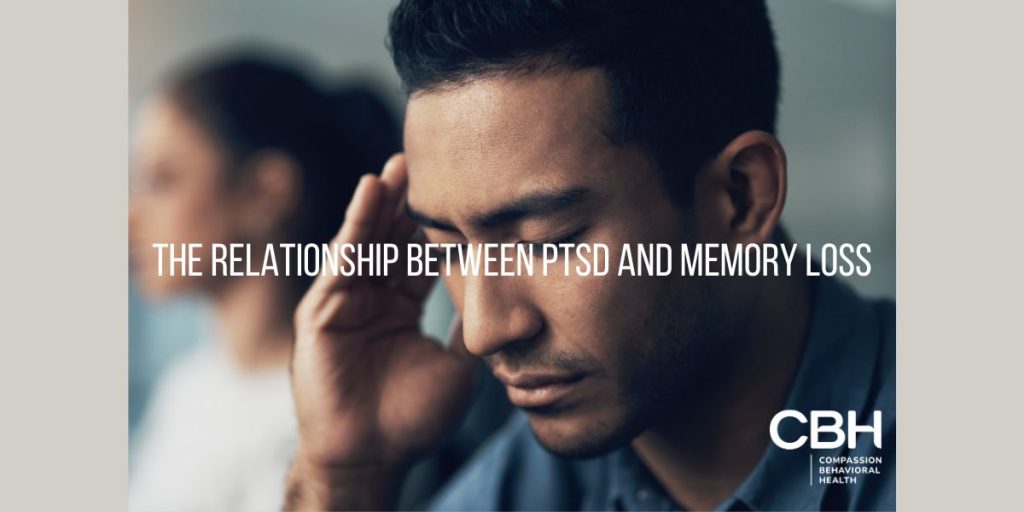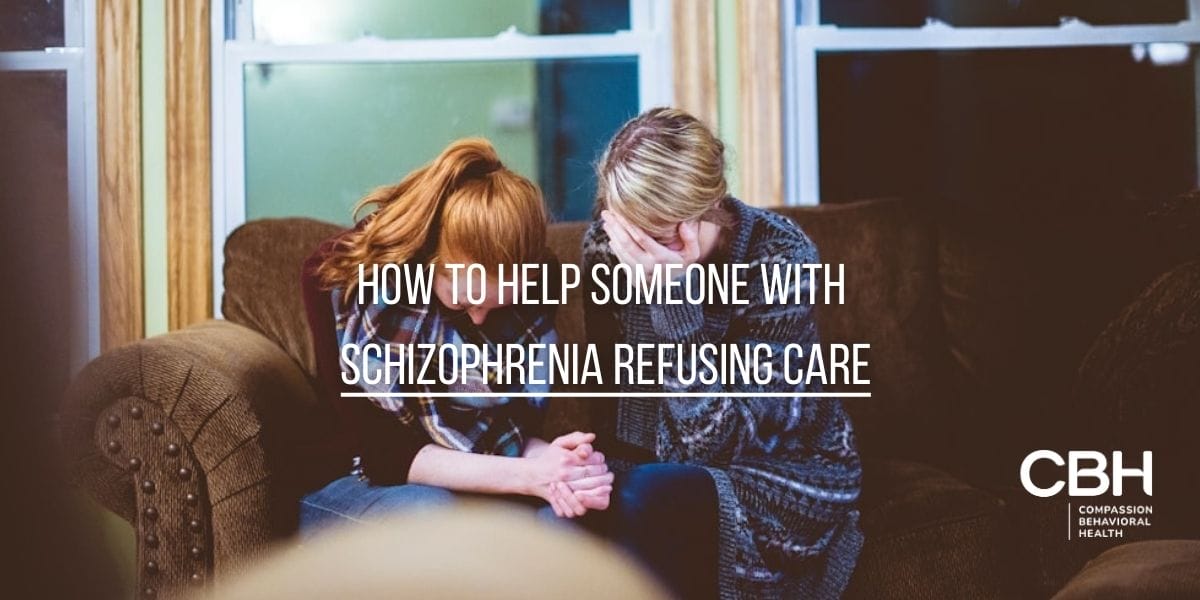Post-traumatic stress disorder (PTSD) is a debilitating mental health condition that can have a profound impact on various aspects of a person’s life. One of the most distressing consequences of PTSD is its effect on memory. This article explores the complex relationship between PTSD and memory loss, shedding light on the causes, symptoms, and psychological impact of this intersection. Furthermore, we delve into available treatment options for individuals grappling with this challenging combination.
What is PTSD: An Overview
PTSD, short for Post-Traumatic Stress Disorder, is a complex psychological condition that can manifest following exposure to a traumatic event. This disorder can affect individuals of all ages, genders, and backgrounds, making it a widespread concern in society. In the United States alone, it is estimated that approximately eight million adults grapple with the challenges of PTSD on a daily basis.
Individuals who develop PTSD often find themselves struggling to cope with the aftermath of distressing incidents that have left a lasting impact on their mental well-being. The journey towards healing from PTSD can be a daunting one, requiring patience, understanding, and professional support.

The Causes of PTSD
PTSD can stem from a myriad of traumatic experiences, ranging from physical or sexual assault to combat exposure, natural disasters, or serious accidents. The severity and duration of the trauma play a crucial role in the onset of PTSD, as they can shape the individual’s perception of safety and security.
It is important to recognize that PTSD does not discriminate and can affect anyone who has endured a traumatic event, underscoring the importance of fostering a compassionate and inclusive environment for those navigating the complexities of this disorder.
Common Symptoms and Effects of PTSD
Individuals grappling with PTSD often contend with a host of distressing symptoms that can disrupt their daily lives. From haunting nightmares and intrusive thoughts to debilitating flashbacks and overwhelming anxiety, the effects of PTSD can permeate every facet of a person’s existence.
Moreover, the repercussions of PTSD extend beyond the individual, impacting their relationships, work performance, and overall well-being. By shedding light on the common symptoms and effects of PTSD, we can foster a greater understanding and empathy towards those who are bravely confronting this challenging condition.
The Intricacies of Memory Loss
Memory loss is a complex phenomenon that can occur due to various factors, such as aging, medical conditions, or brain injuries. However, the relationship between memory loss and PTSD is particularly intriguing.
One fascinating aspect of memory loss is its connection to emotional experiences. Memories tied to strong emotions, whether positive or negative, tend to be more vivid and long-lasting. This phenomenon, known as emotional memory, plays a significant role in understanding how PTSD affects memory retention and recall.
The Science Behind Memory Formation
To understand the impact of PTSD on memory, it is essential to comprehend how memories are formed. Our brains encode, store, and retrieve information through a multistep process involving different regions and neural pathways.
Furthermore, recent studies have highlighted the role of sleep in memory consolidation. During sleep, the brain processes and strengthens memories, helping to solidify them for long-term storage. Disruptions in sleep patterns, often observed in individuals with PTSD, can impair this crucial memory consolidation process.
Different Types of Memory Loss
Memory loss can manifest in different ways, such as difficulty in forming new memories (anterograde amnesia) or forgetting past events (retrograde amnesia). In the context of PTSD, individuals often struggle with both forms of memory loss.
Moreover, research suggests that individuals with PTSD may experience fragmented memories of traumatic events, leading to a phenomenon known as dissociative amnesia. This type of memory loss involves a disconnect between thoughts, identity, consciousness, and memory, serving as a coping mechanism to protect the individual from overwhelming emotions associated with the trauma.
The Intersection of PTSD and Memory Loss

Individuals with PTSD often experience disturbances in memory function, which can exacerbate their psychological distress. The intricate relationship between PTSD and memory loss is influenced by various factors, including the type of traumatic event and the individual’s vulnerability.
Furthermore, the impact of PTSD on memory can vary depending on the duration and severity of the traumatic experience. Research suggests that individuals who have been exposed to prolonged or repeated trauma may exhibit more pronounced memory deficits compared to those who have experienced a single traumatic event.
How PTSD Affects Memory
PTSD can disrupt memory formation and retrieval processes by affecting the brain regions involved in memory consolidation. Stress hormones released during traumatic events can interfere with the creation of new memories, leading to fragmented recollections.
In addition, individuals with PTSD may also experience intrusive memories or flashbacks, where the traumatic event is involuntarily replayed in their minds. These intrusive memories can further complicate the individual’s ability to form coherent and organized memories of the event.
Memory Loss as a Symptom of PTSD
Memory loss is not only a consequence of PTSD but also a symptom in its own right. Individuals with PTSD often report difficulty remembering specific details of the traumatic event, contributing to their sense of confusion and distress.
Moreover, the impact of memory loss in individuals with PTSD extends beyond the traumatic event itself. It can affect their ability to recall everyday information, leading to difficulties in concentration, decision-making, and overall cognitive functioning. These memory impairments can significantly impact the individual’s quality of life and interpersonal relationships.
The Psychological Impact of PTSD-Induced Memory Loss
The interplay between PTSD and memory loss can have profound psychological implications for individuals. Understanding these emotional consequences is crucial in providing effective support and intervention for those affected.
Individuals grappling with PTSD-induced memory loss often find themselves navigating a complex web of emotions that can exacerbate their existing trauma. The inability to recall significant events or details can trigger a heightened state of anxiety and distress, as they grapple with a fragmented sense of reality. This disorientation can further fuel feelings of helplessness and powerlessness, creating a cycle of emotional turmoil that is challenging to break.
Emotional Consequences of Memory Loss
Memory loss can intensify feelings of anxiety, helplessness, and frustration for individuals with PTSD. They may struggle to piece together their past experiences, leading to a loss of identity and a sense of disconnection from their own lives.
Moreover, the emotional toll of memory loss extends beyond the individual, impacting their loved ones and support systems. Family members and friends may experience a sense of grief and loss as they witness their loved one grapple with memory deficits, adding an additional layer of complexity to the psychological impact of PTSD-induced memory loss.
The Effect on Daily Life and Relationships
Memory difficulties can significantly impact an individual’s ability to carry out daily activities, maintain employment, and sustain healthy relationships. The strain caused by memory loss can lead to social isolation and a diminished sense of self-worth.
Furthermore, the erosion of memory can erode the fabric of personal relationships, as individuals may struggle to recall shared experiences or engage in meaningful interactions. This can create a sense of distance and alienation, further exacerbating feelings of loneliness and isolation. The ripple effects of memory loss extend far beyond the individual, permeating every aspect of their life and relationships.
Treatment Options for PTSD and Memory Loss
While the combination of PTSD and memory loss presents unique challenges, there are various treatment approaches available that can help individuals regain control over their lives and enhance their well-being.
Individuals experiencing PTSD often find themselves grappling with intrusive memories, flashbacks, and emotional distress that can significantly impact their daily functioning. Memory loss, whether it be related to specific traumatic events or more generalized cognitive difficulties, can further exacerbate these challenges. Seeking treatment for both conditions is essential in order to address the complex interplay between PTSD symptoms and memory impairment.
Therapeutic Approaches

Cognitive-behavioral therapy (CBT), Eye Movement Desensitization and Reprocessing (EMDR) therapy, and group therapy are effective in addressing the symptoms of PTSD and improving memory function. These therapies aim to alleviate distressing symptoms, reframe negative thoughts, and promote adaptive coping strategies.
CBT, in particular, helps individuals identify and challenge negative thought patterns that contribute to both PTSD symptoms and memory difficulties. EMDR therapy utilizes bilateral stimulation to process traumatic memories and reduce their emotional impact, potentially leading to improvements in memory recall and cognitive functioning. Group therapy offers a supportive environment where individuals can share their experiences, learn from others, and develop new coping skills.
Medications and Their Role
In some cases, medications such as selective serotonin reuptake inhibitors (SSRIs) or benzodiazepines may be prescribed to alleviate anxiety and improve overall psychological well-being. However, medication should always be used in conjunction with therapy and under the guidance of a healthcare professional.
It is important to note that while medications can help manage symptoms, they do not address the underlying causes of PTSD and memory loss. Therapy remains a crucial component of treatment, as it allows individuals to explore the root of their issues, develop coping strategies, and work towards long-term healing and recovery.
In conclusion, the intricate relationship between PTSD and memory loss can significantly impact the lives of individuals struggling with these conditions. Understanding the causes, symptoms, and psychological implications is crucial to provide appropriate support and intervention. With the help of therapeutic approaches and medications, individuals can begin to heal, regain control over their lives, and find hope in the face of this challenging combination.
PTSD Treatment at Compassion Behavioral Health in South Florida

If you or a loved one is navigating the complexities of PTSD and memory loss, remember that you’re not alone. At Compassion Behavioral Health, we understand the courage it takes to seek help, and we’re here to offer that beacon of hope.
Our specialized treatment plans are tailored to address both mental health and substance use issues, ensuring your journey to recovery is supported every step of the way. Conveniently located in South Florida, our Hollywood rehab center provides a serene environment conducive to healing.
Don’t let another day go by feeling overwhelmed by the past. Call us today and take the first step towards reclaiming your life with the care and support you deserve.



